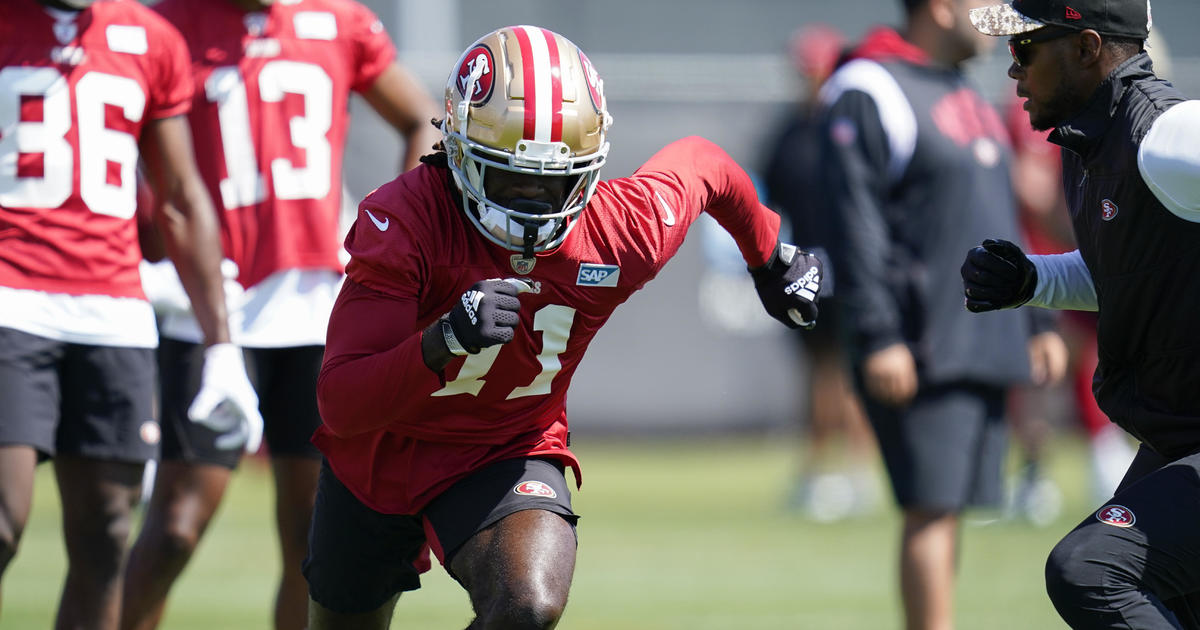Bay Area Residents Worried About Radiation Face Uphill Battle Fighting Cell Towers
SAN FRANCISCO (KPIX 5) – Some Bay Area residents feel like David fighting Goliath. They don't want RF-emitting cell towers all over their neighborhoods. But the wireless industry says they need them to keep up with demand, and the industry usually gets its way.
10-year old Eoghan Gormley wants his voice heard. He's the youngest of a group of residents trying to stop Verizon from installing mini-cell towers, in some cases, right outside their windows.
"The proposed site for the antenna that Verizon seeks to install is right outside my front window. In addition, there is an antenna is less than 150 feet from my classroom. This means that I will be exposed to radio frequency emissions 24 hours a day, 7 days a week," Eoghan told the San Francisco Appeals Board.
But the Federal Communication Act says you can't consider health concerns as long as wireless companies follow FCC radiation guidelines that haven't been updated since 1996.
So the only way to win is on a technicality. And of the hundreds of challenges over the years, five families were the first to win at the San Francisco appeals board, based on a technicality regarding lack of notice. But now they're back, after Verizon's cell tower installer, Crown Castle appealed the appeal.
To date, no one has successfully stopped a cell tower installation, thanks in part to a single line, snuck into the Middle Class Tax Relief and Job Creation Act of 2012 that has nothing to do with jobs. It states that local governments may not deny and shall approve any qualifying request to install cell phone towers.
"It only makes sense in the context of a government that is influenced and owned by these large interest groups," said Dan Newman. He runs Maplight.org, a non-profit that tracks money's influence on politics.
His group crunched the numbers and found AT&T alone spent a whopping $124 million lobbying the Federal Government since 2008. Verizon came in a close second at $118 million. He says, not only did that help to buy them protection from local challenges, it also bought them influence on the very agency that is supposed to regulate wireless companies.
"Appointments to powerful regulatory agencies in Washington like the FCC have to be approved by influential members of Congress, and those members of Congress are exactly the targets of all the lobbying campaign contributions by the wireless industries," said Newman.
He says for example, the former chairman of the CTIA Wireless Association, Tom Wheeler, now heads up the Federal Communications Commission. And former FCC commissioner Meredith Baker is now the CEO of the CTIA.
In a statement, the FCC writes "Chairman Wheeler is a proven advocate for consumers…and has held the wireless industry accountable for violations of the commission's rules."
However, in its statement the wireless industry points out that the FCC still said "There is no reason to believe towers could constitute a potential health hazard."
It's been nearly 20 years since the FCC has examined Wi-Fi or cell phone radiation guidelines in spite of world-wide petitions from environmental scientists to re-examine safe exposure levels.
"I mean, think about how absurd it is that citizens aren't able to speak or bring up or have health concerns," said Newman.
Back at the appeals board, residents got a second reprieve. Commissioners stood by their decision to deny Verizon's permit for five cell towers in the neighborhood. But residents aren't hopeful the victory will last.
"They're going to close this technical loophole, and they will just apply again," said resident Ludwig Chincarini. Verizon and Crown Castle had no comment.
Turns out that victory was short-lived. Following the hearing, the city closed that loophole. Verizon re-applied and was re-issued permits for those five cell sites.
Full CTIA statement:
"Since we are not a scientific organization, with respect to the matter of health effects associated with wireless base stations, CTIA and the wireless industry have always been guided by science, and the views of impartial organizations. The World Health Organization states that from all evidence accumulated so far, no adverse short or long term health effects have been shown to occur from the RF signals produced by base stations. Since wireless networks produce generally lower RF signals than base stations, no adverse health effects are expected from exposure to them." The Federal Communications Commission also notes that "there is no reason to believe that [cellular and other radio] towers could constitute a potential health hazard to nearby residents or students."
Full FCC statement:
"Chairman Wheeler is a proven advocate for consumers at the FCC and has held the wireless industry accountable for violations of the commission's rules, including radio frequency safety regulations. While wireless deployment is critical to meeting demand by consumers for bandwidth-intensive mobile broadband service, the commission's top priority is protecting consumer health, safety and welfare."



